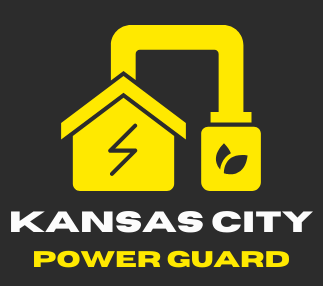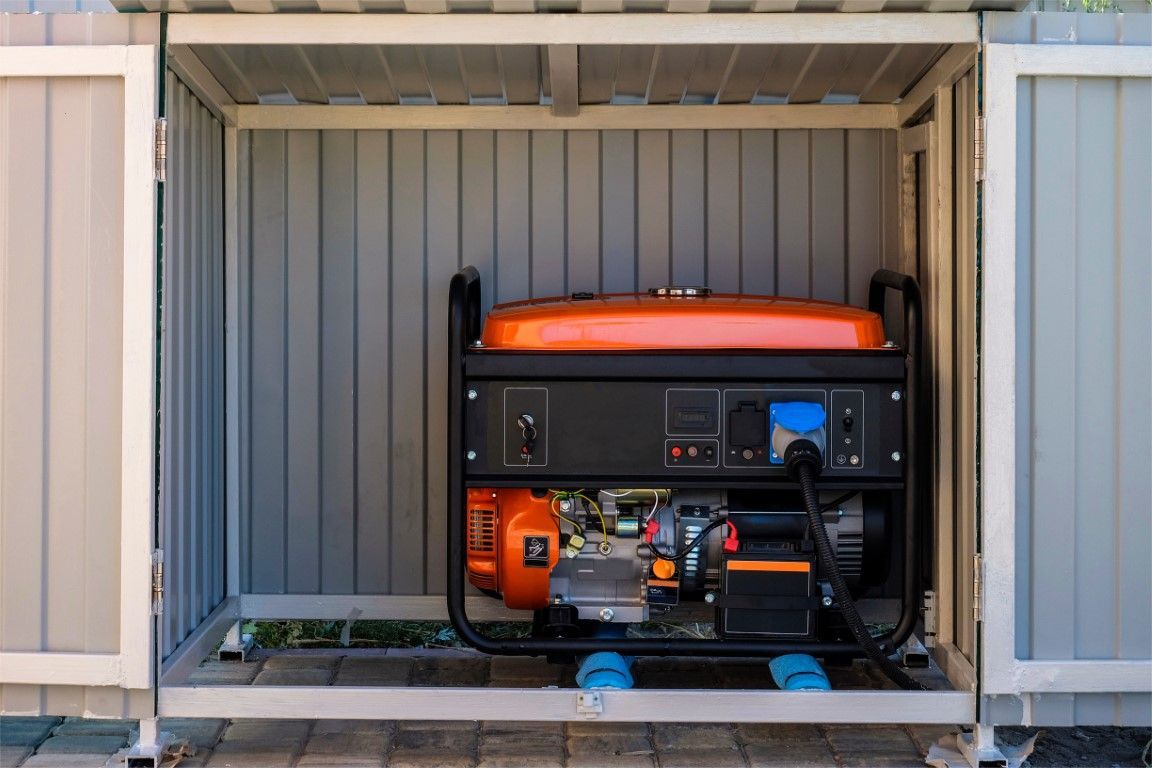
Solar Generators in Kansas City MO
Solar generators are devices that use sunlight to produce electrical power. Unlike traditional generators that run on gasoline or diesel, solar generators harness energy from the sun through solar panels. They convert this sunlight into electricity, which can then be used to power various devices and appliances. Solar generators are often used in places where traditional power sources are unavailable or impractical.
Basic Function and Purpose
The main function of a solar generator is to provide electricity by capturing and converting sunlight. Here’s how it works: solar panels absorb sunlight and turn it into direct current (DC) electricity. When you need power, an inverter in the solar generator converts the stored DC electricity into alternating current (AC) electricity, which is the type used by most household appliances.
Solar generators are useful in a variety of situations. They are commonly used in off-grid locations, such as remote cabins or camping sites, where access to the electrical grid is limited. They are also employed as backup power sources during power outages. Additionally, solar generators can be used to power small devices and appliances in everyday settings, making them a versatile and environmentally friendly choice for generating electricity.
Solar generators offer several advantages:
- Environmental Benefits: They produce clean energy from the sun, which reduces reliance on fossil fuels and lowers carbon emissions. This makes them a more eco-friendly option compared to traditional generators.
- Cost Savings: Once installed, solar generators can reduce electricity costs because they rely on free sunlight rather than purchased fuel.
- Portability:
Many solar generators are designed to be portable, making them ideal for camping, RV trips, or other outdoor activities. They can provide power wherever sunlight is available.

We will get back to you as soon as possible.
Please try again later.
Low Maintenance
Solar generators typically require less maintenance than gasoline or diesel generators. Solar panels have no moving parts, and batteries need only occasional checks.
Applications of solar generators include:
- Emergency Backup Power: Keeping essential devices running during power outages.
- Off-Grid Living: Providing electricity for homes or cabins located far from the electrical grid.
- Outdoor Activities: Powering gadgets and appliances while camping, hiking, or traveling in an RV.
- Remote Work Sites: Supplying power for tools and equipment on construction sites or other remote locations.
In summary, solar generators offer a clean, cost-effective, and versatile solution for generating electricity. They are especially valuable in situations where traditional power sources are not available, making them an excellent choice for a wide range of applications.
Essential Guide to Choosing the Right Solar Generator: Power, Battery, and Key Features
When picking a solar generator, it’s important to think about a few key things to make sure you get the best one for your needs. First, figure out how much power you’ll need. Make a list of everything you want to power with the solar generator, like a fridge or a laptop. Each item uses a certain amount of power, called watts. Add up the watts for all the items on your list. For example, if you need to power a fridge (200 watts), a laptop (50 watts), and a lamp (30 watts), you should get a generator that can provide at least 280 watts.

Choosing the Right Size
Once you know how many watts you need, pick a solar generator that can handle that amount. It’s a good idea to choose one with a bit more power than you need, just to be safe. This way, you ensure it can run everything without any problems.
Battery Capacity

The battery in a solar generator shows you how long it can supply power before needing a recharge. Think about how long you’ll be using your devices and how much power they use. For example, if you need to power something that uses 100 watts for 5 hours, you need a battery with at least 500 watts of capacity.
Different Battery Types
Solar generators come with different types of batteries, such as lead-acid or lithium-ion. Lithium-ion batteries are often better because they are lighter, last longer, and charge faster. Compare the types to see which one suits you best.
Portability vs. Permanence
- Will You Move It or Keep It in One Place? Think about how you plan to use your solar generator. If you need to move it around, like for camping or travel, look for a portable model with wheels or a handle. If you need it to stay in one place like at home or a cabin, a larger, stationary model might be better. Stationary generators usually have bigger batteries and stronger solar panels.
- What Will You Use It For? Consider what you’ll use the solar generator for. Portable ones are great for trips or temporary power needs. Stationary ones are better for long-term use or as a backup power source at home. Choose the generator that best fits your needs.
Extra Features
- Charging Options: Check how the solar generator can be charged. Most can be charged with solar panels, but some can also be plugged into a wall outlet. Having both options gives you more flexibility. Some can even be charged from a car, which is handy for travel.
- Inverter and Outlets: Look at the inverter, which converts power from the battery into usable electricity. Make sure it can handle the total wattage of your devices. Also, check the number and types of outlets, like USB ports and AC outlets, to ensure they fit your devices.
- Durability: If you’ll be using the solar generator outside, make sure it can withstand different weather conditions. Look for one that is durable and can resist rain, dust, and extreme temperatures. A sturdy generator will perform better in various environments.
In summary, choosing the right solar generator involves thinking about how much power you need, the battery capacity, whether you need it to be portable or stationary, and any extra features. By considering these factors, you can find a solar generator that works well for you and provides reliable power.
Benefits and Applications of Solar Generators
Solar generators have several great advantages that make them a smart choice for many situations. Here’s why they are beneficial and where they can be used:
- Environmental Benefits: Solar generators produce clean energy from the sun. This means they don't rely on fossil fuels like gasoline or diesel, which helps to lower carbon emissions and reduce pollution. Using solar energy is a more eco-friendly option and helps protect the environment.
- Cost Savings: After you set up a solar generator, you can save money on electricity costs. Solar generators use free sunlight to generate power, so you don’t need to buy fuel. Over time, these savings can add up and make a big difference in your energy bills.
- Portability: This makes them perfect for camping trips, RV adventures, or any outdoor activity where you need power. As long as there’s sunlight, you can use a solar generator to provide electricity wherever you go.
- Low Maintenance: Solar generators are easier to maintain than traditional gasoline or diesel generators. The batteries need only occasional checks and simple care, which means less hassle for you.
- Emergency Backup Power: Solar generators can keep important devices running during power outages. They are great for making sure you have electricity for things like phones, lights, and medical equipment when the main power goes out.
- Off-Grid Living: For homes or cabins that are far from the electrical grid, solar generators provide a reliable source of electricity. They are ideal for places where connecting to the main power lines isn’t possible or practical.
- Outdoor Activities: Whether you’re camping, hiking, or traveling in an RV, solar generators can power your gadgets and appliances. They help you stay connected and comfortable even when you're far from home.
- Remote Work Sites: If you work at construction sites or other places without easy access to electricity, solar generators can power tools and equipment. They are useful for providing the power needed to get the job done in remote locations.
Solar generators provide clean energy, save on electricity costs, and are easy to move and maintain. They’re useful in many situations, such as during power outages, for off-grid living, outdoor adventures, and at remote work sites. With these advantages, solar generators are a smart and eco-friendly option for a wide range of needs, just like our other offerings, including
commercial and
portable generators.
Let's Connect!
We offer expert services in standby whole-house generators, ensuring your home stays powered during outages. Our team provides professional installation, maintenance, and support, delivering peace of mind to homeowners. Hire us today for reliable backup power solutions tailored to your needs.
